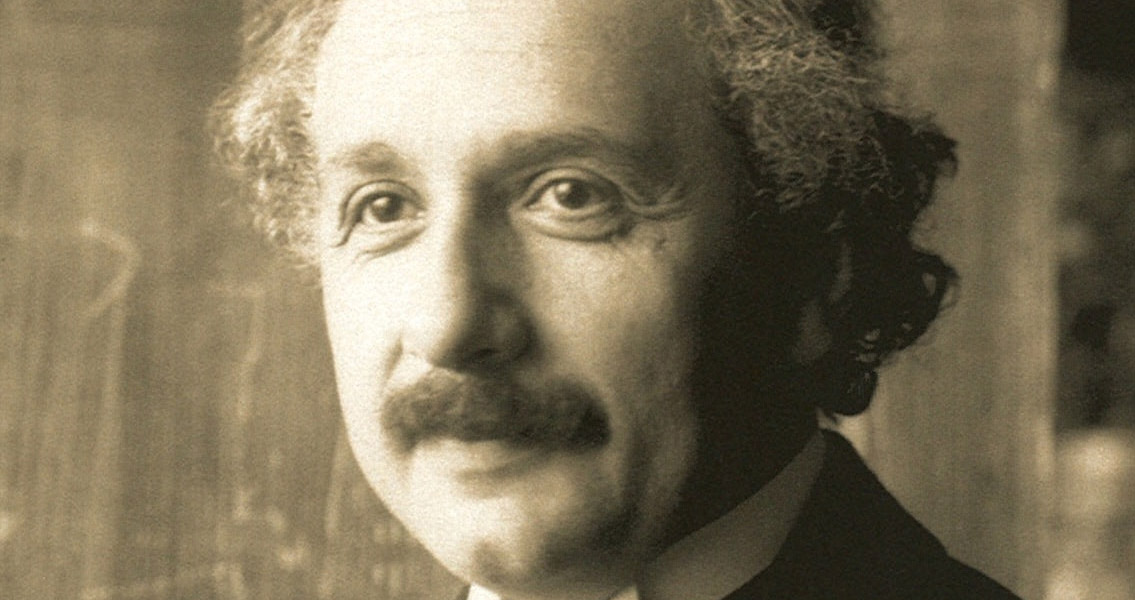<![CDATA[One of the most important scientists in history, and undoubtedly the most significant physicist of the twentieth century, was born on 14th March, 1879. Albert Einstein would go on to become an internationally recognised celebrity, and a noted voice on political and international issues, as well as fundamentally shaping our understanding of the universe. From the moment of his birth, Einstein's life was affected by constant upheaval and relocation. Born in Ulm, Württemberg, Germany, within six weeks Einstein's parents had relocated the family to Munich, where within a few years Einstein would start his schooling at the Luitpold Gymnasium. Later, the family relocated to Italy, and in 1896 Einstein went to Zurich to study to become a physics and mathematics teacher at the Federal Polytechnic School. He acquired Swiss citizenship, and unable to find work as a teacher, accepted a position at the Swiss Patent Office while he studied for his doctoral degree. Although seemingly menial work, especially in light of what Einstein would later go on to achieve, the job at the Patent Office in many ways enabled Einstein to make some of his most remarkable advances. For the first time in his life he had a regular, stable income, allowing him to marry his long term partner Mileva Maric, and affording him stability he hadn't enjoyed since his childhood. Significantly, the work was not challenging for Einstein. He could swiftly analyse the patent submissions he received, leaving him with hours of free time to day dream about the scientific issues which had dominated his mind since childhood and would go on to immortalise him in the history books. Over the course of 1905, a period referred to by many as Einstein's miracle year, he produced five theoretical papers. All of them made ground breaking observations about the universe which are considered fundamental to physics to this day. The first, 'On a Heuristic Viewpoint Concerning the Production and Transformation of Light', argued that light was made up of quanta (photons) which displayed the properties of particles, but collectively behaved as light. The work would eventually win Einstein the 1921 Nobel Prize in Physics. Over his next two papers Einstein provided indisputable proof for the existence of atoms, something which until then was contested in some areas of the scientific community. The first of the papers devised a method for counting and measuring the number of particles in a particular space, while the second proffered the idea of Brownian Motion, a mathematical explanation for the erratic movements of particles in fluid. The fourth paper put forward Einstein's theory of special relativity, which claimed space and time were not absolute quantities but relative to the observer. In this theory, the speed of light was the only constant in all frames of reference. It led to Einstein's fifth paper, where he explored the mathematics of special relativity, concluding mass and energy were equivalent and could be calculated with the now iconic equation, E=mc2. It signaled the start of Einstein's rise to the most significant physicist of his time, the scientist winning a host of prestigious posts in renowned European academic institutions, such as the University of Berlin and the University of Zurich. In 1914, on the eve of the First World War, he moved to Germany. Einstein remained in Berlin for close to twenty years, but ultimately the rise of Hitler pushed him to leave. He renounced his citizenship in protest at the rule of the Nazi party, and emigrated to the USA to take up the role of professor of theoretical physics at Princeton. His growing status, in the science world and beyond, saw the physicist become increasingly politically active. A pacifist, he'd long campaigned against rearmament in the wake of the First World War, something which made him unpopular in Germany. In 1939, he was one of a group of scientists who wrote a letter to President Roosevelt hoping to persuade him to launch American research into atomic weapons, fearful of the consequences should Germany become the only country with access to the atom bomb. The post war period, and the last decade of Einstein's life, were defined by attempts at unification, in both his scientific works and his political campaigning. He argued passionately for the creation of a World Government, believing it the best way to manage nuclear weapons and prevent further mass conflict. At the same time he worked on formulating a unified field theory of physics, something which could tie together gravitation, electromagnetism and sub-atomic phenomena. Published in 1950, his unified field theory was widely deemed a failure, although it raised questions which plague scientists to this day. Having largely withdrawn from the public eye and increasingly working to refine his ideas in small groups of colleagues from Princeton, Einstein died in April 1955. This article was changed on 14th March 2016. It wrongly stated that Einstein won the 1921 Nobel Peace Prize, when in fact he won the 1921 Nobel Prize in Physics]]>
Albert Einstein Born in Germany
